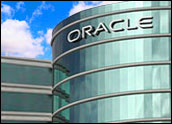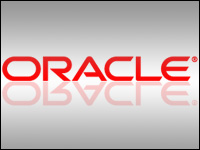
Oracle has rolled out the next iteration of its core database product line. Oracle Database 11g, the company proudly claims, is the result of 15 million test hours and 36,000 person-months of development.
“Oracle Database 11g, built on 30 years of design experience, delivers the next generation of enterprise information management,” said Andy Mendelsohn, senior vice president of database server technologies for Oracle.
Hundreds of New Features
The new database — the company’s first in four years — is been packed with 400-plus new features. Users and consultants are highlighting their favorites as reasons to adopt 11g.
Particularly anticipated is 11g’s improved integration of Oracle Audit Vault and Oracle Database Vault, said Ari Kaplan, president of the Independent Oracle Users Group. The feature puts confidential information in a locked vault, where only someone like the COO, CFO or an external audit company can view and modify the records.
No one else has that feature on the market, he claims.
Of the 480 features introduced in Oracle 11g, two in particular — artificial intelligence for self-management and improved real application clusters — appeal to clients, Donald Burleson, founder of Burleson Consulting and author of several books on Oracle, told CRM Buyer.
“Oracle is leading the pack in intelligent self-management for databases — it is beating the daylights out of DB2 and SQL Server because it has incorporated artificial intelligence to take feedback from Oracle and adjust a configuration according to changes in the database load,” he maintained.
Another example is the automation of SQL tuning in 11g, Burleson said. Oracle automated the memory and storage management functions in 10g.
These tools also could cut additional inroads into the small and medium-sized business (SMB) market. “A mom-and-pop grocery store can now install 11g without a high degree of technical knowledge,” he pointed out.
Upgrades in the real application clusters also make database management easier for firms with fewer resources. No other database management system in the world offers rolling upgrades, said Burleson. “These allow you to upgrade the software while it is still running — it is an amazing feature.”
Making the Jump
It remains to be seen, though, how fast companies will upgrade to 11g.
“There are two measures of success to any enterprise class software or hardware offering,” said Charles King, founder of Pund-IT Research. “How well does it meet the essential needs of its base customers? And how quickly can the company migrate its base to the product?”
The first doesn’t necessarily guarantee the second, he said. “All of the bells and whistles Oracle promised in 11g are there — it was delivered on time. As a product, it is a good one.”
However, moving to a new core database is never an inconsequential task and, in fact, is getting more difficult as databases grow larger and more complex.
“From what I have heard and read, I think a lot of the customers will appreciate 11g,” King said, “but they won’t be rushing to deploy it until it is time for an upgrade.”
At a Glance
Other new features in Oracle 11g:
- Oracle Real Application Testing allows customers to test and manage changes to their IT environment.
- Oracle Data Guard enables customers to use their standby database to improve performance in their production environments, as well as provide protection from system failures and site-wide disasters. Oracle Data Guard enables simultaneous read and recovery of a single standby database, making it available for reporting, backup, testing and “rolling” upgrades to production databases, the company explains.
- New data partitioning and compression automation capabilities extend existing range, hash and list partitioning to include interval, reference and virtual column partitioning. There is also a set of composite partitioning options.
- Advanced data compression is available for both structured and unstructured large object (LOB) data managed in transaction processing, data warehousing, and content management environments.
- Oracle Total Recall enables administrators to query data in designated tables “as of” earlier times.
- Oracle Flashback Transaction makes it easy to back out a transaction made in error, as well as any dependent transactions.
- Parallel Backup and Restore helps improve the backup and restore performance of very large databases.
- “Hot patching” improves system availability by allowing database patches to be applied without the need to shut databases down.
- Data Recovery Advisor helps administrators significantly reduce recovery downtime by automating problem investigation, intelligently determining a recovery plan, and handling multiple failure situations.






















































